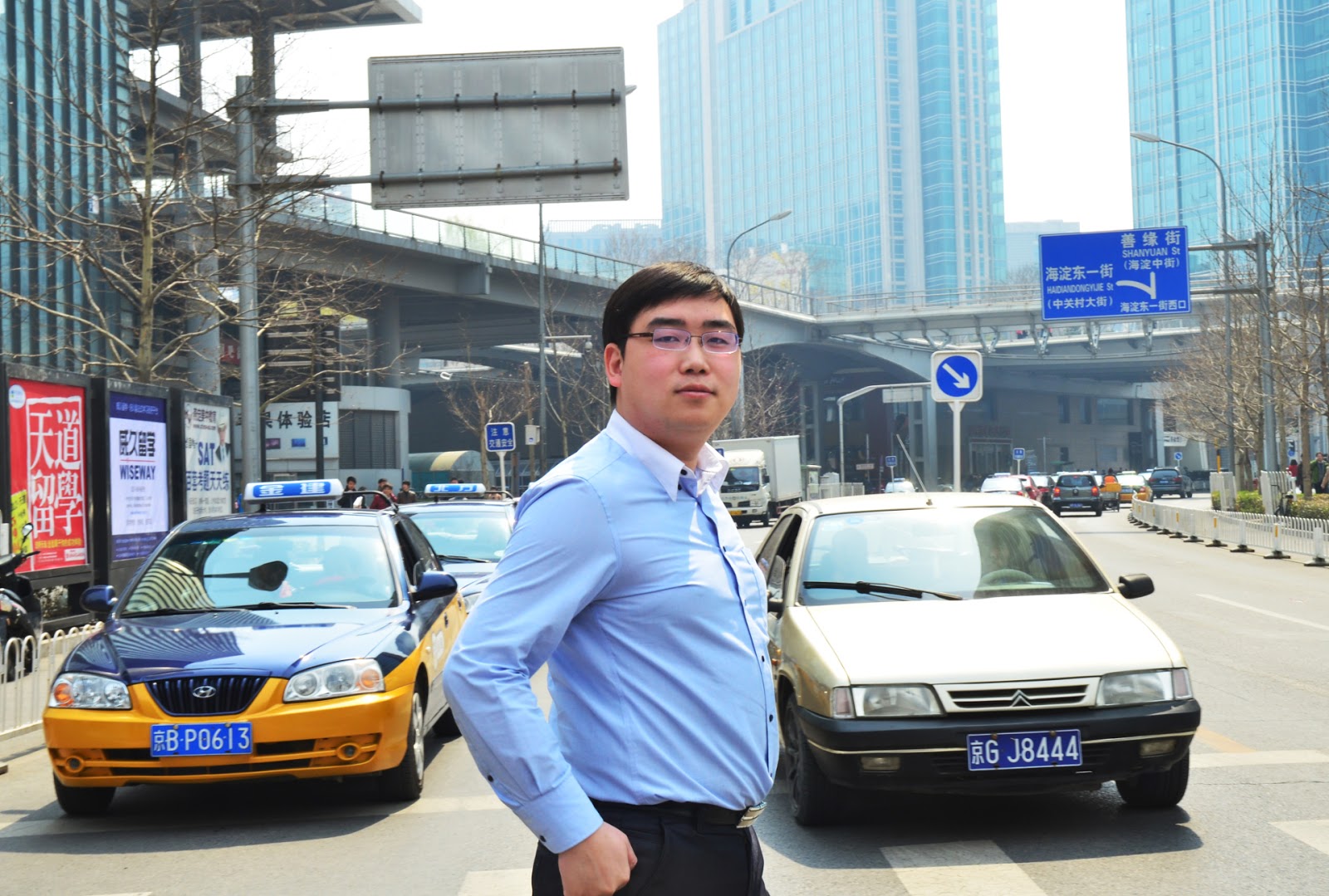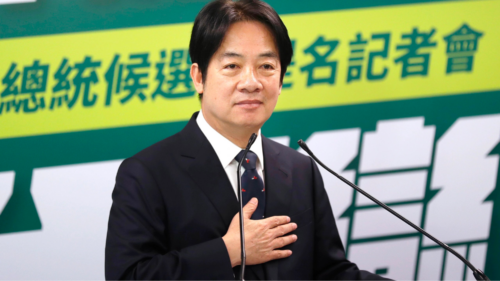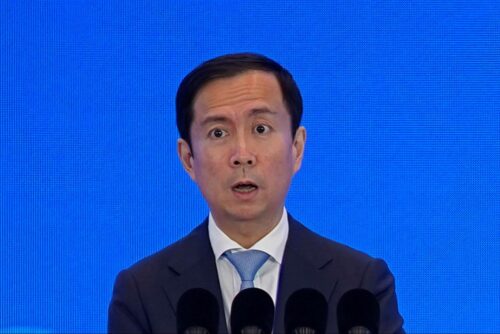Consumers love cheap groceries, but can community group buying withstand government scrutiny?
Community group buying is taking China’s residential compounds by storm as even non-tech-savvy grannies see the price benefits and tech companies pour millions into the sector. But not everyone is happy with the booming new industry.

One pound of ribs for $4, two dozen rolls of toilet paper for $3, eight eggs for 30 cents, and six oranges for less than a cent. A community leader keeps posting all these bargains in the WeChat group of hundreds of your neighbors. Everyone else is placing orders in the chat, only you are missing the deals. Buy now, you can pick up your order tomorrow right at the convenience store downstairs. No shipping fee needed.
Community group buying (社区团购 shèqū tuángòu) is 2020’s hottest grocery shopping platform in China, and also the latest battlefield for the country’s tech giants. Alibaba, Tencent, JD.com, and many more are investing billions of dollars to sell perishable groceries to nearly 700 million Chinese who live in lower-tier cities. The community group-buying market is expected to reach $15.6 billion by 2022, threefold compared with 2019, according to iiMedia research (in Chinese).
The pandemic has made online grocery shopping more popular, and community group buying has made it affordable. During the more than two months of pandemic lockdowns earlier this year, millions of Chinese people relied on a small group of community workers to purchase food and life essentials in bulk on their behalf, and picked up the groceries in a neighborhood spot.
After the lockdown, the community group-buying model continued to prevail. The self-designated community leaders, or tuánzhǎng 团长 in Chinese, are typically small business owners or time-rich residents like stay-at-home moms. They promote deals in WeChat groups that consist of 500 or fewer residents living in surrounding apartments, and purchase in bulk on community group-buying platforms. Residents place orders through mini-programs or direct cash transfer on WeChat or other online payment services. The last-mile delivery, which costs around 50 cents to $1 in the traditional online grocery model, is covered by the community leaders or shared by consumers themselves.
“Costs are reduced, sale price is lower, time efficiency is higher, and customer experience is better,” Qín Ruì 秦瑞, a warehouse distribution manager at Nice Tuan, a leading community group-buying platform backed by Alibaba, told The China Project.
As an area manager in Liaocheng, a fourth-tier city in China’s eastern province of Shandong, Qin manages around 200 community group leaders and organizes daily distributions of groceries to tens of thousands of customers. The community group leaders, most of whom are owners of small businesses like convenience stores or fruit shops, receive commissions of around 10% of the total sale, and each typically earns 200 yuan ($31) a day.
The price is right for consumers, but is it suicide for convenience stores?
Zhào Yùe 赵悦, an analyst at Beijing-based research firm Analysys, told The China Project that the efficiency of community group buying is in between traditional group-buying models like Pinduoduo, which take three or more days to deliver, and immediate grocery delivery, which takes about an hour or less (but costs much more). The markdowns have made community group buying attractive to older, price-sensitive, and less-internet-savvy customers.
Qin Rui joined Nice Tuan in July, when the company raised $80 million in its Series C+ for market expansion. Nice Tuan bagged another $196 million in another round of fundraising led by investors such as Alibaba last month.
The top existing players in community group buying all have backing from tech giants. Tencent joined a $800 million Series C+ of China’s largest community group-buying platform, Xingsheng Youxuan, or Xingsheng Preference, in July, before the company received another $700 million of strategic investment from JD.com earlier this month. Four funding rounds in the past 16 months have boosted (in Chinese) Xingsheng Youxuan’s valuation more than fourfold to over $4 billion.
Tech companies are also rushing into the market with their own community group-buying platforms. Ride-hailing company DiDi Chuxing’s Chengxin Youxuan made its debut in Chengdu this June, food delivery giant Meituan introduced Meituan Youxuan in Jinan a month later, and leading group-buying platform Pinduoduo’s Duoduo Maicai joined the competition in Xi’an in August.
Chéng Wéi 程维, DiDi’s CEO, said (in Chinese) in a November internal meeting that the company has no cap for the resources to support Chengxin Youxuan to expand service and become the No. 1 player in community group buying.
As tech companies crowd into the sector, they are trying to lure customers with high subsidies and almost-free deals. This has caused friction with some community leaders, who hesitate to promote deals that offer lower prices than their own stores.
Ān Yǒng 安勇, a convenience store owner and community leader in the southwestern city of Guiyang, said if he promotes community group buying to old customers, his own business will soon collapse.
“If a convenience store joins community group buying, it is committing suicide. If it doesn’t join, it will be murdered,” An, who calls himself Songzi Brother on his V-log channel on Bilibili, said in a video earlier this month. “I just wish all these subsidies could end as soon as possible,” he said.
Qin Rui, the distribution manager, said while a small number of community group leaders expressed concerns, many others saw the benefits of joining the platforms, given the commission and that customers may buy other goods from their stores when picking up groceries.
Qin believes community group buying is an “irresistible general trend” of grocery shopping in China. “It’s better if they (the convenience store owners) do it, or others will,” he said.
The government wants microchips, not cheap cabbages
The community group buying platforms’ price war has also hit many food manufacturers and suppliers, who see their products’ sale value drop as tech giants’ subsidies lead to improbable price tags. Wei Long, China’s most popular spicy snack brand, banned (in Chinese) its distributors from supplying community group-buying platforms due to the “severely low price” they offered.
The controversies soon attracted government attention and scrutiny. China’s Party-affiliated newspaper People’s Daily published (in Chinese) a commentary on December 11 urging internet giants to be more responsible to the country and divert resources to develop “strangling” key technologies like semiconductors that are under U.S. restrictions.
“Don’t just think about the traffic of a few bundles of cabbage and a few pounds of fruit,” the commentary said.
Nanjing’s city government introduced China’s first regulation targeting community group buying on December 9, banning platforms from using “unfair competition methods” that may damage the interests of other market players and consumers. The regulation specifically warned community group-buying platforms to not use ultra-low prices to occupy markets and squeeze out competitors, citing national rules such as the Price Law and the Anti-Monopoly Law (which the government is starting to use against tech companies).
While the market and Chinese news media are speculating on possibilities of harsher scrutiny on community group buying, Zhao Yue of Analysys believes the government is only cautioning companies to not waste money and resources in a new market that may only have limited capacity.
“My understanding is that the government wants companies to be more rational, and to expand the market more efficiently,” Zhao said. “But not to rush to pour all the hot money that may end up down the drain.”
Zhao said, with recent government signals, community group-buying platforms may slow down the expansion and adjust their strategy by entering different cities instead of overcompeting in a handful of second-tier cities like Tianjin, Wuhan, Changsha, Chengdu, and Chongqing.
Although the community group-buying industry has begun to face regulation, it still serves the government’s interest in economic reboot and job creation, as the country continues to recover from the pandemic. Another People’s Daily commentary on job creation (in Chinese), which was published on December 14, listed the community group-buying leader as one of the novel occupations created as new industries emerge.
Ā Xía 阿霞, a convenience store owner in the northeastern city of Shenyang, has been working as a community leader on the side for over a year. Earlier this month, she had to close her store after daily sales were down to almost nothing, and is now a full-time community group-buying leader.
“I’m basically a company employee now,” she told The China Project. “My store is the warehouse, and I’m a saleswomen.”
Want to know more about group buying? In the latest Tech Buzz China podcast, hosts Rui and Ying look at why the internet giants have all gone in with guns blazing, and investors are bullish.






